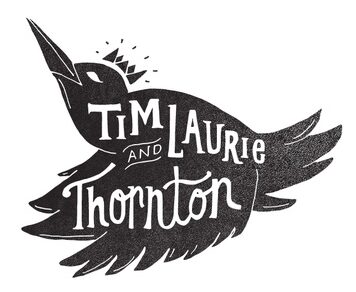Good news for the end of the year. The journey is never over.
One of my least favorite things on reality TV (I watch only because Laurie loves it) is when they kick someone off a show saying “I’m sorry, your journey is over.”
No, the journey is never over. And my dance-competition/weight-loss-contest/bizarre-multiple-dating-relationship is not my journey. Its bigger than that.
So, I don’t take the word journey lightly. But I’ve noticed there is a journey that God takes us on. I see it in my life and those of my friends, and it is a repetitive theme in scripture. I’ve also noticed that my thinking about work and provision changes as I travel this journey.
Consider the Israelites and these stages in their journey, just for starters.
1. The people are in captivity. They slave away, sowing and reaping, but someone else gets the benefit of their toil. They have to work/perform in order have a place in the world.
2. God breaks into the story and rescues them. Amazing. He invites them on a journey into a desert where they are free, but they also suffer and most importantly, they find out who they are to him. They find out he’s trustworthy and they are happy in him. They begin to identify according to their relationship to him. They receive their provision because of who they are to God, regardless of their output. There really is no sowing or reaping in the desert, only watching the adventure unfold with God.
3. They arrive at their destination: the promise. They claim a land as their own and start sowing and reaping again, according to God’s desire for them. As long as they remain oriented toward the one they learned to trust in the desert, they receive the benefits of their labor. Much of my upcoming reflections will be about this stage in the journey.
4. If they trust in earthly things, they become captives to earthly things. I think step 4 is optional, but often chosen. Repeat step 1.
There is a lot of journey to be had in each of these stages, and they are not always cut and dry. The journey is never over.
The Don’t Eat Your Seed conversation helped move me personally from desert thinking to promised-land thinking. Let’s call it “kingdom thinking” since the promised land in the Old Testament relates to the kingdom of God for us today.
I had been celebrating the end of my slavery thinking for some time, and had been in a desert mentality. This was good. I truly trusted God to be my provision regardless of my work output. I had rightly learned that “This is the work of God, that you believe in Him whom He has sent.” (John 6:29)
However, once I learned that God was truly a trustworthy provider and so much more, he had more wonderful things in store for me than just the desert journey, and part of that is stewarding the gifts I’m given. Laying something aside for the next season. It’s not a lack of trust that there will be provision in the next season, it’s a cooperation with the divine that puts me in a place of creativity and stewardship instead of need.
The beauty of life is in its seasons: planting, harvesting. To explore the metaphor, think of the wonder of raindrops falling when they are much needed and requested in prayer. The courageous spout bursting through the ground in the spring. A strawberry the size of your fist.
Think of the adventure of being creative, building something, taking risks, learning from failures (instead of letting them define us), and all of the other things that can happen when we sow and reap in rhythm with God in his kingdom.
Knowing there are different stages doesn’t change the one you are in. Only renewing the way you think does.
Where are you today? How do you know?

Tim, your articulation of great but difficult kingdom ideas is a gift. Thanks for sharing and challenging my thinking. Looking forward to more kingdom conversations in the new year.
One more thought- I’d love to see a longer blurb/essay/etc. on each of the stages. That’d rock. Or you could just write a book. 🙂
I’ll try and expand on some of that. And a book or pamphlet of some kind is not out of the question if enough people want it! I’ll mark one for “yes.”
I second that! Would love to hear more on the stages! Thank you for sharing this… Im at the beginning of Stage 2 but it’s not easy to understand “regardless of my output” and be humble when trying to understand it. And seriously my daughter and i really miss Good Song Sunday!
Happy New Year to you and your beautiful family!!
Thanks for both of those encouragements, Melissa! It’s truly great to hear from people about what they want! We’ll do our best to get it in gear. 🙂